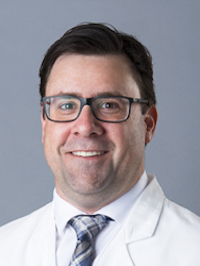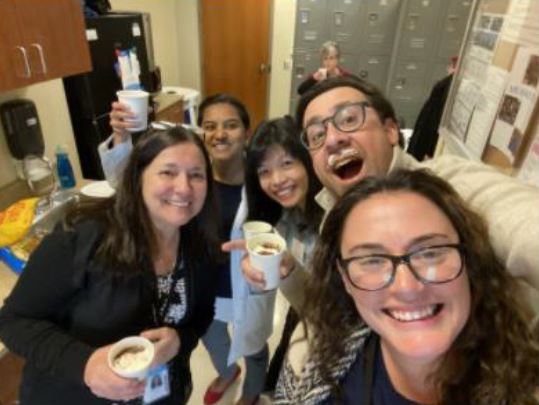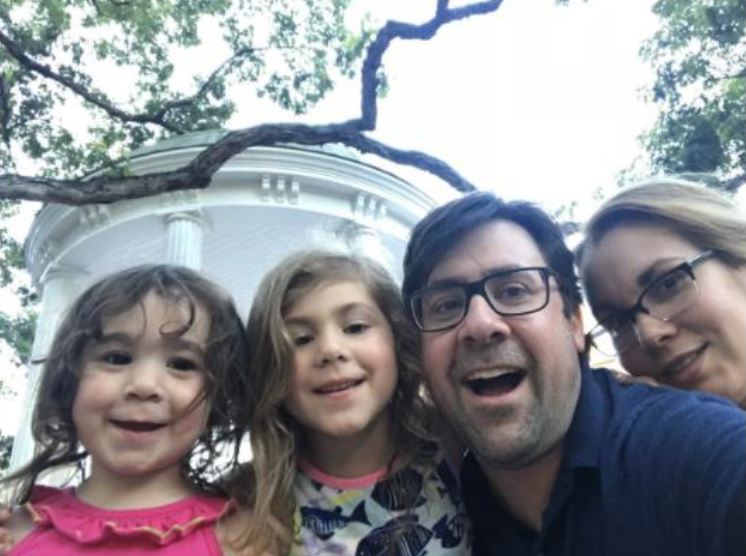Jorge L. Almodóvar-Suárez, MD

Tell us a little about your background.
I was born and raised in a college town on the West Coast of Puerto Rico, a proud product of the state-funded University of Puerto Rico System and its philosophy of affordable education for all Puerto Ricans. My wife and I moved to Boston in the mid-2000s for my neurology training, and eventually established our family in the “Live Free or Die” state. After almost a decade at Dartmouth, we decided it was time for a new adventure further south.
Why did you choose to work at UNC?
When our oldest daughter entered Pre-Kindergarden, the school district dilemma forced us to revisit our individual, family and career goals. Professionally, I felt my previous job description constrained my growth, so we followed warmer weather with four seasons. The reputation of UNC encouraged my application, and once interviewed, I was smitten by Chapel Hill with its college town feel, and the opportunities that the UNC system provides. In some ways, UNC is very similar to my home college campus — activism and active social debates included. College sports are definitely a plus. Unfortunately, COVID has prevented us from enjoying the joys of the area fully. We definitely look forward to that vaccine.
What’s something that has pleasantly surprised you since joining UNC?
The available opportunities for personal and professional goals are, in my perspective, abundant and customizable to my own goals. As a bonus, most of my neighbors are in some way related to the UNC Chapel Hill community through direct enrollment, employment or traditional bonds. Chapel Hill residents are genuinely proud to be part of the UNC community as faculty, staff, students, trainees, patients or Carolinians.
Describe UNC Neurology in three words.
Intensity, drive, growth.
What do you view as the strongest attributes of UNC Neurology?
The pride our faculty, staff, trainees and patients express not only with words, but with actions. People work here because they want to, not because they have to.

What is your favorite part of an ordinary day at UNC?
The culture of team-work and mentoring is very appealing. We all work closely to meet personal and departmental missions. There are places in the healthcare world where efficiency and productivity are prioritized, whereas faculty satisfaction is a second thought, and deviations from “the culture” are discouraged. At UNC, I can be efficient and productive, autonomous and satisfied, while at the same time innovate, learn from the best, and seek advice from those around me. If my peers are successful, then I am successful.
Where do you see room for growth in UNC Neurology?
It is my view that the current philosophies of healthcare management around the nation weigh process standardization, cost control, operational efficiencies, and customer satisfaction over the health, well being and sense of stability and security of the human resource elements of health care systems. As examples, inconsistent human contact in centralized clinic paradigms limit healthy one-on-one employee relationships and exchange of innovative solutions (reminds me of the “back to the office” controversy at Yahoo when Marissa Mayer became CEO).
Patient-doctor relationships are in some ways undermined by the approaches to patient satisfaction taken from the lodging or retail industry. These challenges give us the opportunity to innovate and set an example. On a more local level, I perceive that our UNC Health and Faculty Practice components share goals, but we can do better to align and coordinate our hospital, Prestwick and Panther Creek Operations. Sometimes, our goals can be held back by arbitrary (or bureaucratic) administrative lines and boundaries.
 What have you gained from working at UNC?
What have you gained from working at UNC?
I have gained new friends, amazing colleagues and joined an exciting, vibrant community which has become closer during an active pandemic.
Who inspires you?
Through hard work and self-sacrifice my parents brought me and my sister to where we stand now. My wife is a major stabilizing force and source of realistic hopes; she protects me from self-deception. My daughters inspire me to give it all. They seem to have a simple expectation: my presence and attention. As a reward, they laugh at my “dad jokes.” My routines never bomb with those two.
If you could have any superpower, what would it be and why?
As a nerd, geek and unapologetic comic book fan, I can say that Doctor Who, The Flash and Doctor Stephen Strange possess my favorite superpower: the ability to travel through the multiverse. The concept of inter-dimensional travel and multiple realities fulfills a craving and curiosity to play the game of “what ifs” and witness endless possibilities.
How do you feel about DEI at UNC?
All it takes is a look at our department and the university website to notice that UNC is a very diverse community, by design or by chance. We still have miles and miles to go, however. I am pleased that our department actively works to integrate modern, practical concepts of DEI into our clinical, academic and education enterprises.
What elements of DEI are most important to you and your career?
For me, the main driver for DEI is “compassion” and “empathy.” DEI should be indisputable, and not an uncertainty. I am passionate about DEI because it gives me a sense of purpose. This is not about “checklist DEI” to comply with a Federal or State law, or to show that “we care.”
DEI is expensive, DEI takes time, DEI takes effort, DEI takes work. DEI is challenging and requires the courage to reflect on personal biases and respectfully “call out” friends and colleagues. I have been lucky, privileged and fortunate; and have always been in the right place at the right time. DEI demands that I acknowledge it is time to support those around me with initiatives where my career ambitions will be set aside so another talented individual can grow.
Is there any advice you would like to pass on?
DEI initiatives do not require herculean or heroic efforts. We can apply these concepts easily to our daily routines and impact the lives of others. As an example, now that the USMLE scoring system will soon change to a pass/fail model, I have started to reassess my approach to the residency candidate interviews. Previously, I would review the applications before the interviews, and unknowingly biased myself by scores, numbers and credentials. Subsequently, the interview was by guided by the elements of the application.
This year I changed my process by reading the application after the interview. I have explored how internal biases affect my interpretation of the file, and external social determinants affect the content of applications dramatically. Pre-interview assumptions are that the applicant entered and advanced through an LCME- or COCA-accredited medical program, is a successful and driven individual, and is clearly interested in neurology. This ensures that I keep my interest in the applicant alive during the interview.
I now have the chance to enjoy a no-pressure conversation exploring personal and professional interests in a spontaneous manner. Rather than guide the conversation, I encourage the applicant to guide the conversation, and ask how I can sell them our program. Afterwards, I’ll review the application mostly for red flags in the dean’s letter and letters of recommendation.
Although the essays are interesting, I find that students usually write about what they think we want to hear, not what they really want to say. This interview paradigm gives me the opportunity to have a two-way, honest and open conversation. I confess that this year, I have learned from the applicants more than ever.
What type of impact do you want to leave?
I have learned to accept that many of my career ambitions are unattainable, unrealistic or limited by my current credentials, past choices or mistakes, and array of experiences. Although it might be late for me, I hope to use my experience to guide those who seek my help, towards their own goals.
